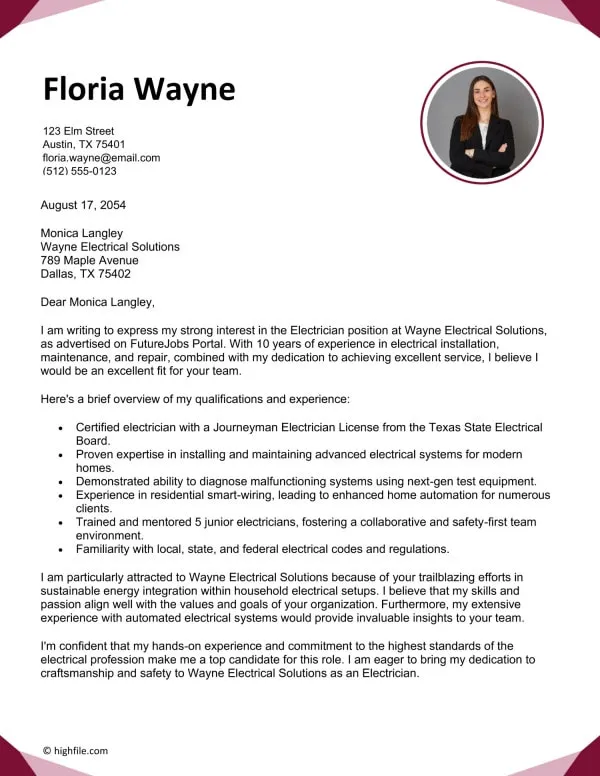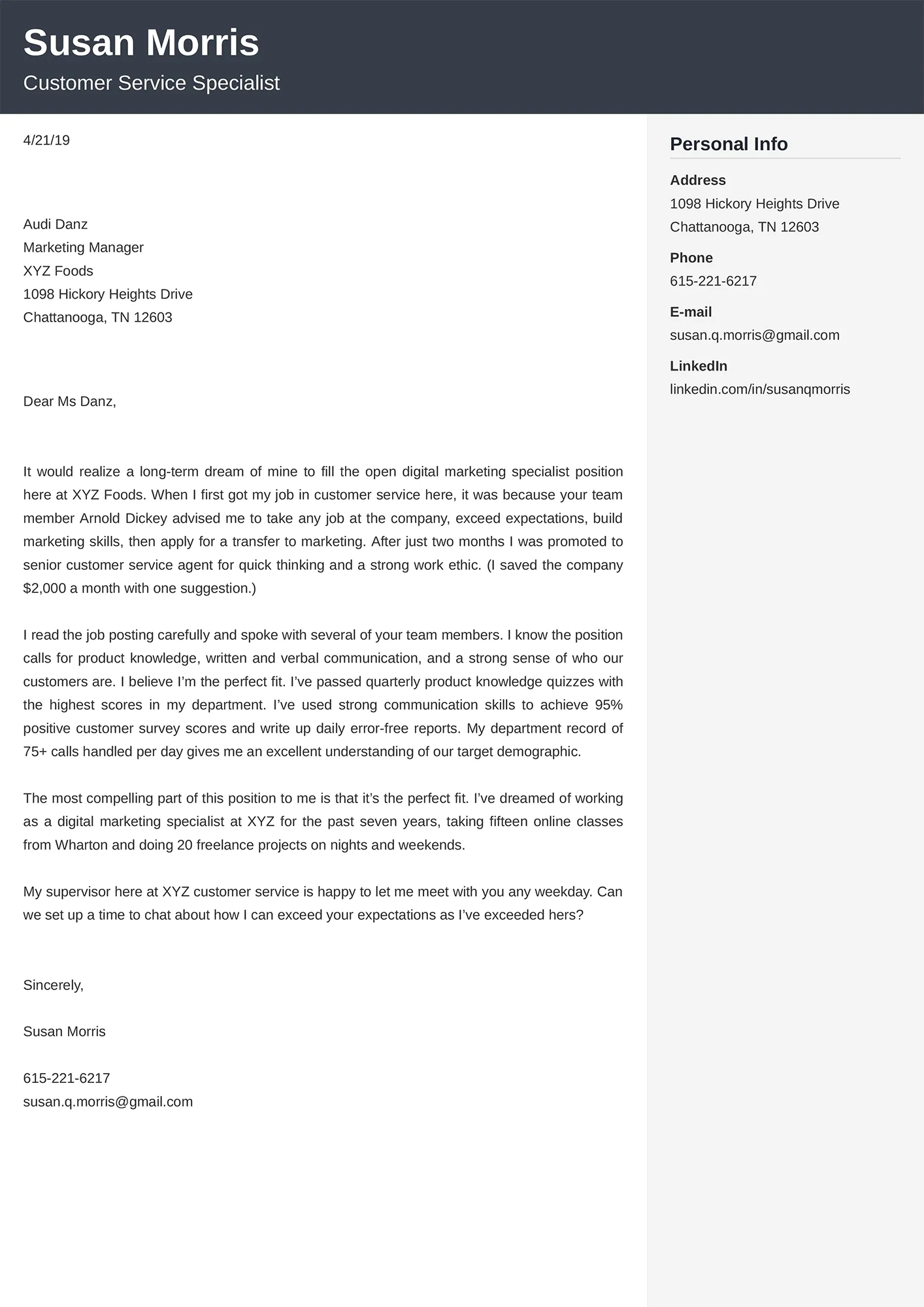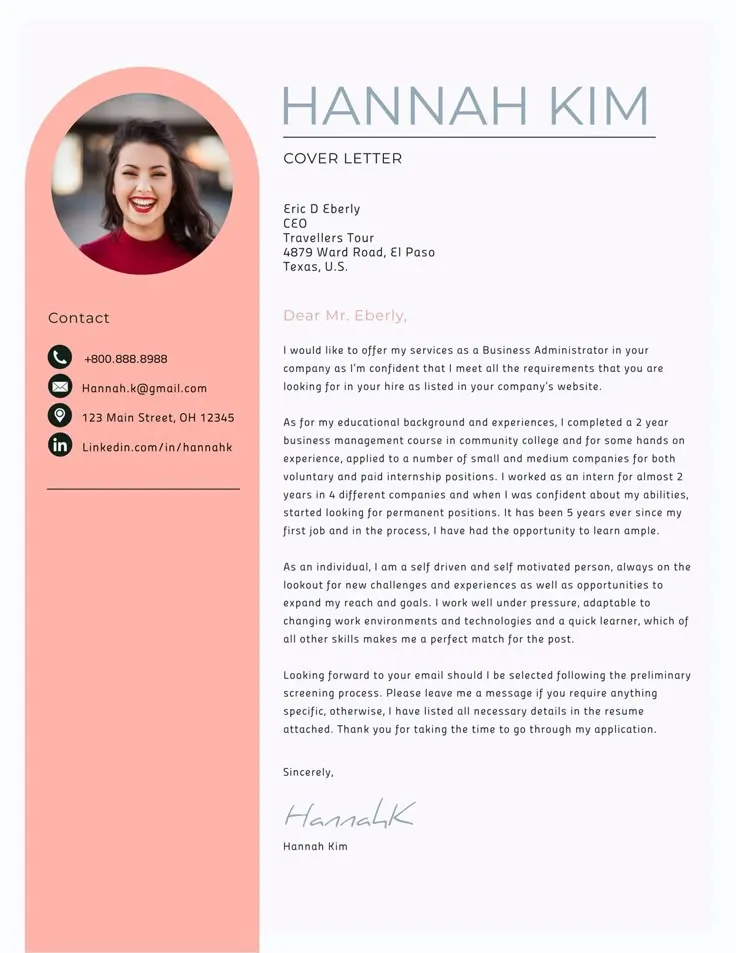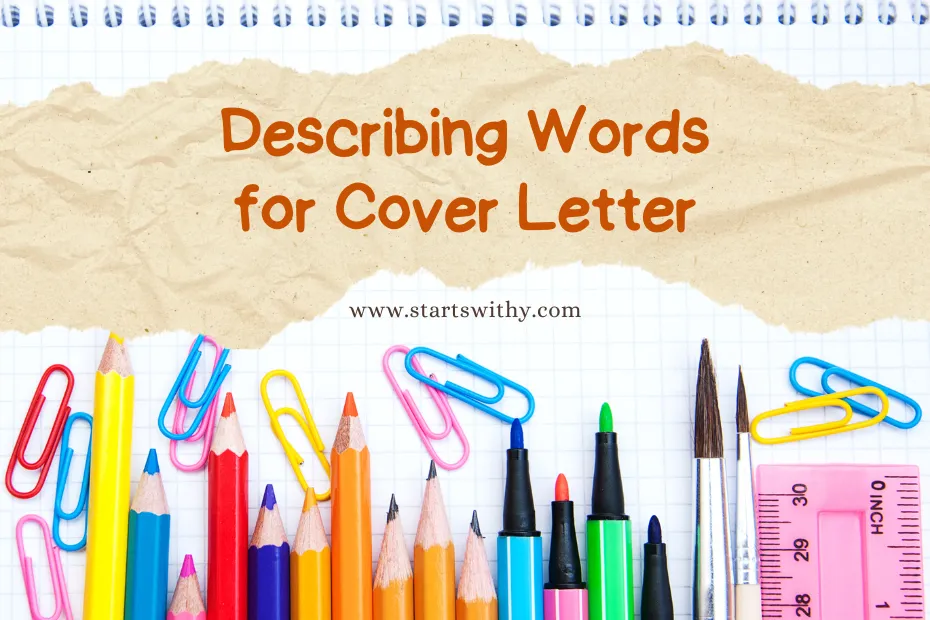What Makes a Cover Letter Stand Out
In a sea of applications, a cover letter is your chance to shine. It’s not just a formality; it’s your first impression. Think of it as a personal introduction, a way to show you’re more than just a list of skills on a resume. A well-crafted cover letter provides context, demonstrates your understanding of the role, and most importantly, highlights why you’re the perfect fit. To stand out, it must be tailored to the specific job, demonstrating that you’ve taken the time to understand the company’s needs. Generic letters are easily spotted and often discarded. Instead, a strong cover letter quickly grabs the reader’s attention by showcasing enthusiasm, relevant skills, and personality. The tone should be professional yet engaging, allowing your unique qualities to resonate with the hiring manager. The goal is to make them eager to learn more about you, encouraging them to read your resume and consider you for an interview. Remember, it’s a marketing document. You are selling yourself to a potential employer, aiming to present yourself as the ideal candidate.
Why Adjectives Matter in Cover Letters
Adjectives are the spice of a cover letter, adding flavor and impact. They go beyond simply stating your skills; they demonstrate how you apply them. They paint a picture, helping the reader visualize you as the ideal candidate. Consider the difference between ‘I have experience’ and ‘I have extensive experience managing teams.’ The latter is more compelling because ’extensive’ adds a layer of depth and detail. Adjectives create a vivid narrative, bringing your qualifications to life and making your achievements more memorable. When used correctly, they showcase your personality and communication style, offering a glimpse into how you might fit within the company culture. They also provide a subtle indication of your attention to detail and your command of language, both crucial in any professional setting. A strategic use of adjectives helps differentiate you from other applicants. It transforms your cover letter from a list of accomplishments into a compelling story of your capabilities and potential.
10 Adjectives to Highlight Your Skills

Choosing the right adjectives is key. Here are ten that can significantly enhance your cover letter, along with examples of how to use them effectively. Remember to select adjectives that genuinely reflect your skills and experience. Avoid overusing them. Each adjective should be chosen purposefully to highlight a specific achievement or trait.
Confident
Confidence isn’t arrogance. It’s the belief in your abilities, which can be quite attractive to employers. When you are confident, you signal that you are comfortable taking on challenges and making decisions. You can use this adjective to describe your skills in previous projects. For instance, ‘I am confident in my ability to manage complex projects and deliver results on time and within budget.’ This suggests a candidate who is ready to handle challenges with composure and assertiveness. Highlighting the confidence helps employers understand they can count on the candidate to handle difficult situations with poise and a proactive approach. It also demonstrates a willingness to take initiative and embrace new opportunities. Overall, confidence signals that the candidate is likely to be an effective and self-assured contributor.
Adaptable
In today’s fast-paced work environment, the ability to adapt is essential. Employers seek candidates who can seamlessly transition between tasks, learn new skills quickly, and remain flexible. An adaptable employee is not only able to adjust to new situations but can thrive in them. Using this adjective shows your resilience and openness to new experiences. You might write, ‘I am adaptable and quickly adjust to changing priorities and environments, as demonstrated by my success in diverse roles.’ This implies that the candidate is comfortable with change and can learn new skills. Being adaptable makes you a valuable asset, as you can easily integrate into various teams and tackle diverse projects. It also demonstrates an openness to learning and growing, which is always a plus for potential employers.
Results-Oriented

Employers don’t just want to know what you did; they want to know what you achieved. Being results-oriented shows that you’re focused on outcomes, not just tasks. It reflects a dedication to achieving goals and a clear understanding of how your work contributes to the overall success of the company. Use this adjective to highlight your impact. For example, ‘I am a results-oriented professional, consistently exceeding sales targets by an average of 15%.’ This example showcases the candidate’s direct impact on business outcomes, which clearly demonstrates their value. If you focus on results, you are showing that you are focused on what’s really important: achieving the organization’s goals. It is a proactive approach that employers value because it demonstrates a commitment to excellence and a strong work ethic.
Proactive
Proactive individuals take initiative and anticipate needs before they arise. Being proactive means you don’t wait for instructions; you identify problems and implement solutions. This is a valuable trait as it demonstrates a willingness to take ownership and contribute to the team’s success. Use this adjective to highlight your initiative, for example, ‘I am a proactive team member, always looking for opportunities to improve processes and contribute to positive change.’ A proactive candidate demonstrates that they are not just a follower. They are a leader who understands their role. They bring new ideas and improvements to the table. This initiative can have a direct impact on team and company performance. Therefore, potential employers will appreciate this attribute.
Motivated
Motivated employees are driven, enthusiastic, and committed to their work. They are not only more productive but also more likely to bring positive energy to the workplace. Showing motivation tells employers that you are passionate about your job and willing to go the extra mile. For example, you might say, ‘I am a highly motivated individual, consistently seeking new challenges and opportunities for professional growth.’ This showcases a dedication to excellence and a willingness to learn and improve. A motivated candidate will not only complete tasks but will also strive for improvement. They are often driven to exceed expectations. This is valuable in any team.
Dedicated

Dedication reflects a commitment to your work and a willingness to see tasks through to completion. This means you are reliable and will stay focused until the job is done. It suggests a strong work ethic and a commitment to achieving high standards. For instance, ‘I am a dedicated professional, known for my commitment to quality and my ability to meet deadlines.’ This sends a signal to potential employers that the candidate is reliable and can be counted on to finish the work. It also demonstrates a high level of professionalism and a focus on maintaining standards. A dedicated employee is an asset to any company, as they ensure tasks are completed to the best of their ability.
Resourceful
Resourcefulness indicates your ability to find creative solutions and make the most of available resources. It means you can think on your feet and find innovative ways to overcome challenges. In a work environment, a resourceful employee is a problem-solver. Use this adjective to highlight your adaptability and problem-solving skills. For example, ‘I am a resourceful problem-solver, adept at finding innovative solutions with limited resources.’ This demonstrates an ability to think critically and adapt to challenges. A resourceful employee is not afraid to experiment and think outside of the box. They always find a solution and turn challenges into opportunities. This is an important quality in any team.
Team Player
Teamwork is essential in most workplaces. Being a team player shows your ability to collaborate, communicate effectively, and contribute to group goals. It tells employers that you value collaboration and are committed to the success of the team. Use this adjective to emphasize your collaborative skills. For example, ‘I am a team player who thrives in collaborative environments, actively contributing to a positive and productive team dynamic.’ This showcases your willingness to cooperate with others, share ideas, and contribute to a supportive work environment. A team player is an asset to any group, fostering a positive atmosphere and driving the team toward common goals. A candidate’s ability to work with others can create a positive and efficient workplace.
Detail-Oriented

Attention to detail is essential for many roles, especially those requiring accuracy and precision. It indicates that you carefully review your work and strive to avoid errors. It showcases your ability to identify and correct mistakes. Using this adjective in your cover letter can demonstrate that you pay attention to accuracy. You can say something like, ‘I am a detail-oriented professional with a proven ability to maintain high accuracy in all my work.’ This example demonstrates to the recruiter that you are diligent, careful, and committed to excellence. Being detail-oriented can be a great asset to a team. It can prevent errors and make it a more efficient work environment.
Innovative
Innovation is crucial in a competitive market. If a candidate can show the employer their ability to think critically, find creative solutions, and propose new ideas to help the company, this can be a good attribute. An innovative candidate is more likely to bring new approaches to the table and make the company’s processes more efficient. You can state it this way, “I am innovative, and I have a passion for thinking outside the box and bringing solutions to the table.” This showcases your ability to look for new solutions. For a company, an innovative employee is key to future growth.
How to Choose the Right Adjectives
Selecting the right adjectives for your cover letter is an exercise in self-assessment and job-specific tailoring. It is a process of selecting adjectives which match the job requirements. Always begin by analyzing the job description, identifying the key skills and qualities the employer seeks. Then, consider your own experiences and achievements. Which of your strengths align with those requirements? Choose adjectives that best reflect those strengths and showcase your value. Ensure the adjectives you choose are relevant to the role, and support them with specific examples from your work history. Use the job description as a guide. By using the job descriptions, you are able to find the keywords and highlight your skills to match. Remember to align your descriptions with the job’s needs.
Matching Adjectives to the Job Description

Tailoring your cover letter to match the specific job description is key to success. Each job has its unique requirements, so you should align your language accordingly. Pay close attention to the keywords and phrases used in the job posting. If the description emphasizes teamwork, use adjectives like ‘collaborative’ or ’team-oriented.’ If the role requires problem-solving skills, consider ‘resourceful’ or ‘analytical.’ By using the same language as the employer, you demonstrate that you understand their needs and can fulfill them. Show the recruiter that you will fulfill those needs. The more the wording aligns, the more likely you are to make a positive impression.
Examples of Adjectives in Action
Here are a few examples of how you can use adjectives in your cover letter to showcase your skills. Remember to always back up your claims with specific examples. For a project management role, you might write: ‘As a results-oriented project manager, I successfully led a team of 10 to deliver the project under budget and ahead of schedule.’ For a customer service position: ‘I am a patient and empathetic communicator, consistently exceeding customer satisfaction targets.’ For a sales position: ‘I am a persuasive and motivated sales professional, consistently exceeding sales targets by an average of 15%.’ These examples illustrate how adjectives can be used to create a compelling narrative, helping the hiring manager see your value and skills.
Using Adjectives to Showcase Achievements
Adjectives can significantly enhance your ability to showcase your achievements. By using them to quantify and qualify your accomplishments, you can demonstrate the impact of your work. Avoid general statements and focus on specific results. Instead of writing ‘I improved sales,’ write ‘I implemented a dynamic sales strategy, leading to a 20% increase in sales within six months.’ This statement is more impactful because it includes the adjective ‘dynamic’ and quantifies the result. For a team project, instead of stating ‘I worked on a team,’ state, ‘I was a collaborative team member, and the team consistently met deadlines.’ This paints a clear picture, showing your skills and impact. In addition, each achievement should be tailored to the specific role and company. This way, you are showing that you are the right person for the job and that you’re paying attention to what the recruiter is looking for.
Common Mistakes to Avoid

While adjectives can enhance your cover letter, it’s important to use them effectively. There are some common mistakes you should avoid. Overusing adjectives can make your writing sound inflated and insincere. A few well-placed adjectives are more effective than a barrage of them. Ensure that your adjectives are accurate and reflect your skills and experience. Avoid using vague or generic adjectives that don’t provide any specific information. Finally, always support your claims with evidence. Avoid making unsubstantiated claims. Your goal is to create a genuine image of yourself to show the recruiter you’re the best candidate.
